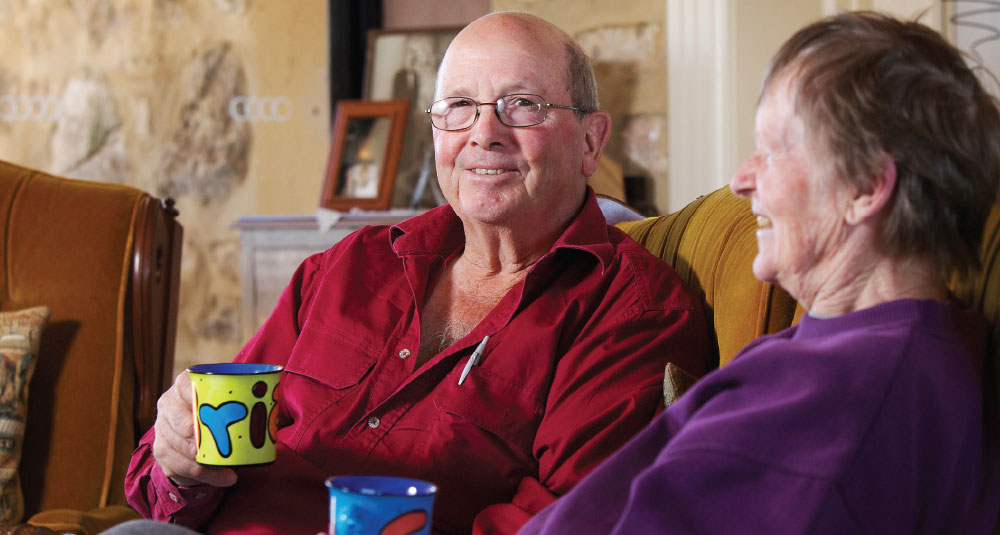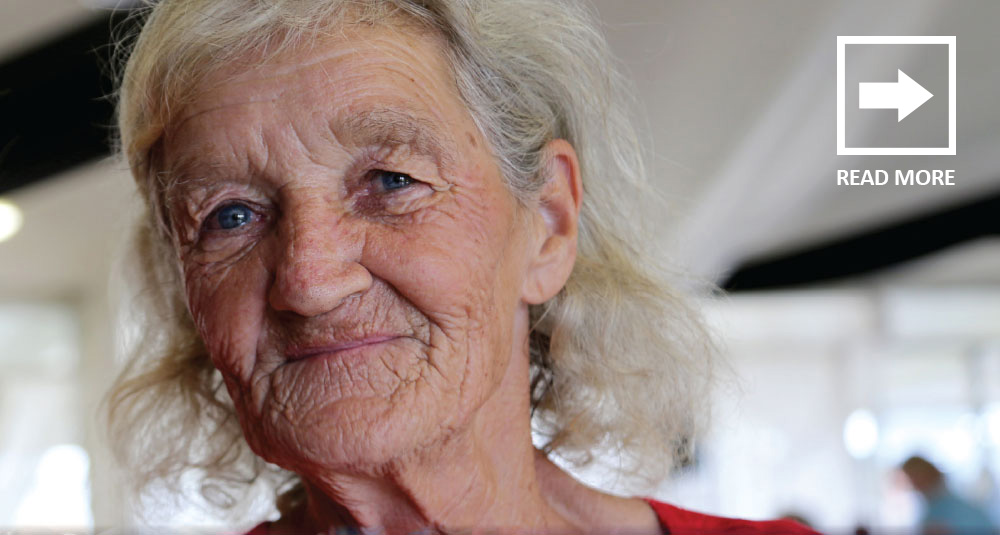Red Cross supports people and communities to prepare for, respond to and recover from disasters.

Brian Griffin, 70, lives alone in a remote area near Adelaide, which has a high risk of fires and power outages. At a REDiPlan session, Brian learnt simple steps to prepare for a disaster. “It doesn’t take much,” says Brian. “I’d rather have a plan in the back of my mind, than not have one at all.”
Over the summer, volunteers and staff worked closely with people impacted by disasters, including bushfires in south-eastern Tasmania and floods across Queensland.
Hundreds of committed and skilled volunteers worked tirelessly supporting people in evacuation centres across the country. Substantial support was provided to ensure the wellbeing of emergency services volunteers in the field and upon their return home.
After the bushfires in Tasmania, a recovery program was initiated in a number of schools in the worst hit areas, with a focus on helping children recover. Communities affected by the Black Saturday bushfires, Cyclone Yasi and the 2011 Queensland floods continued to receive long-term recovery support.
As a member of the Australian Business Roundtable for Disaster Resilience and Safer Communities, Red Cross has an ongoing commitment to improving emergency management policy and practice in Australia. One highlight has been the development of a government white paper featuring recommendations for enhanced disaster resilience in our communities.

When floods hit Queensland in 2013, the bridge connecting Lynette Davies’ town to Ipswich was destroyed. Her house was spared, but the disaster brought back memories of losing her home to floods in 2011. This time Lynette was prepared. “If you’re in control and you have a plan, then the rest of your family will be in control too.”. Australian Red Cross/Dilini Perera.Read More.
REDiPlan evaluation
Red Cross piloted REDiPlan – a disaster preparedness community education program – in the bushfire-prone Adelaide Hills area, with support from the local council. An evaluation of the program provided key insights into the effectiveness of REDiPlan on psychological and physical preparedness and Red Cross program delivery methods. The findings will impact on future REDiPlan initiatives, including assessing the barriers to disaster preparedness, particularly for vulnerable members of the community living in high-risk areas.
Emergency support for children
During this busy summer, Red Cross continued its partnership with leading child rights agency Save the Children. Through this relationship, Red Cross has been able to provide tailored, child-focused services in evacuation and recovery centres across Australia. As a result, children affected by the disasters received the support they needed in the evacuation centre and in their ongoing recovery.
Psychosocial responses
Red Cross ran a study to measure how communities recovered after the 2011 Queensland floods and Cyclone Yasi. Funded by the Thomas Foundation, the study revealed that Red Cross successfully assisted individuals to understand how to help themselves and their communities to recover from disasters and utilise existing pathways to access physical, emotional and social support. Red Cross will use the findings from the study to improve its Psychological First Aid package – a training program for communities to help support people impacted by disaster.


Let us know what you think
Any feedback or complaints about Red Cross or its work can be made at redcross.org.au or by calling 1800 811 700. Red Cross invites any feedback you may have regarding the Year in Review 2012/2013. Contact the editorial team at publications@redcross.org.au